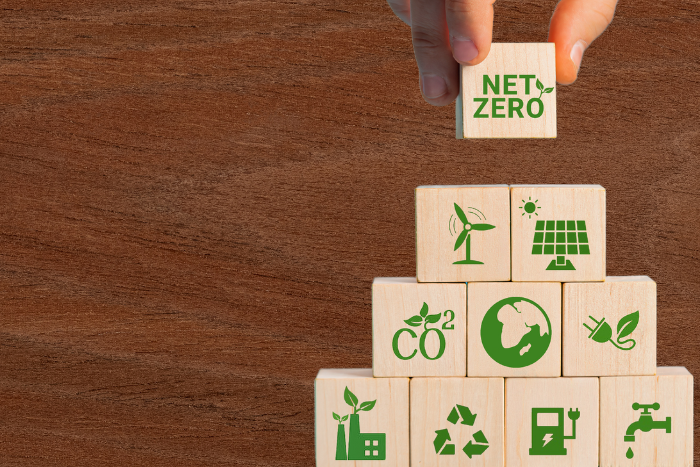Any company or region setting net zero target cannot support the exploration of new fossil fuel supplies, experts recommend
To prevent dishonest climate accounting and the use of net-zero pledges for greenwashing, a recent report has provided a crucial roadmap to bring integrity to net-zero commitments. The United Nations High Level Expert Group (HLEG) on Net Zero Emissions Commitments of Non-State Entities released the report at COP27 on Tuesday.
The report cracked down on greenwashing and weak net-zero pledges that threaten to undermine global efforts to reduce greenhouse gas emissions in line with limiting warming to 1.5°C. CarbonCopy also reported earlier on how most net-zero models are flawed, perpetuate inequity and defy feasibility.
Just a few days before COP27, a flurry of new reports had reiterated that despite a rising number of climate pledges, the trajectory of emissions under current policies is well above what’s required to meet the goals of the Paris Climate Agreement.
“After consulting with hundreds of individuals and organisations and incorporating the latest research and science, we have a roadmap to ensure that net-zero commitments by industry, financial institutions, cities and regions are ambitious, transparent and credible,” said Catherine McKenna, chair of the UN-appointed expert group and former Canadian Minister of Environment and Climate Change.
At COP26 in 2021, the United Nations Secretary General established a group dedicated to developing stronger, clearer standards for net zero, for non-state actors (companies, and regions that are not countries, such as cities or states).
One year on, the group has written and published their final report.
The report provided a crucial roadmap to bring integrity to net-zero commitments by industry, financial institutions, cities and regions and to support a global, equitable transition to a sustainable future.
The report made several recommendations on how to end greenwashing from cities, regions, companies and financiers on their net-zero pledges and plans. These include:
- Climate plans have to be reflective of their responsibility for action and have to be fast enough to avoid the release of greenhouse gases in a way that matches the requirements to limit Earth’s heating to 1.5°C.
- Buying certificates that “offset” emissions instead of reducing emissions must be saved for the final years of net zero. No cheating using offsets.
- Climate plans and annual progress reports should have enough detail to be checked and verified by independent parties.
- Any company or region setting a net-zero target cannot support the exploration of new fossil fuel supplies.
- Lobbying must be for positive climate action, not against it.
- Companies and regions that use a lot of land must ensure that by 2025, any removal of forests they cause is stopped.
- Companies and regions with climate plans must report on their progress actually reducing their emissions, with sufficient detail and rigour.
Recognising the need for finance to facilitate the whole process, the report said that net zero won’t work without sufficient money flowing to developing countries and this should be reflected in the plans of companies and regions.
Malango Mughogho, expert group member and managing director of ZeniZeni Sustainable Finance, said if net zero is done well with consideration for fair share, it can accelerate the energy transition while incorporating resilience.
“There are existing models, like the Just Transition Energy Partnerships, which can be scaled via a collective commitment to net zero, but to make this work, COP27 needs to deliver a finance package and financial regulators should develop regulation starting with high-impact corporate emitters, including private and state-owned enterprises and financial institutions,” she said.
Starting with high-impact corporate emitters, regulations and standards need to be developed and implemented to ensure that the ground rules of the economy are designed to make net zero reduce emissions, the report suggested.
“If we have to get serious about net-zero, greenwashing by corporations must stop. The HLEG recommends that they set out clear targets and pathways but also deliver on absolute emissions reductions by their own efforts. At the same time, actions towards net-zero must also result in far greater climate investment in sustainable infrastructure in developing countries and deliver positive social and economic outcomes for vulnerable communities. Without such investments, the net-zero transition will be neither just nor equitable,” said Arunabha Ghosh, CEO, Council on Energy, Environment and Water (CEEW).
About The Author
You may also like
Zero sharm game: COP27 saves face with minimum common agreements
Issue of mitigation in agriculture remains a sticky subject
Oil and gas lobby makes its presence felt more than ever at COP27
Question of ‘who will pay’ loomed large over LTF negotiations at COP27
Mitigation work programme: Equity gone, rich countries push hard to shift emission cuts to Global South at COP27

